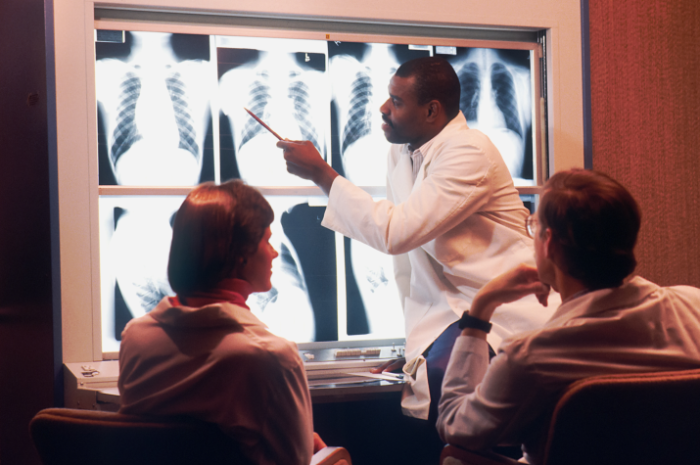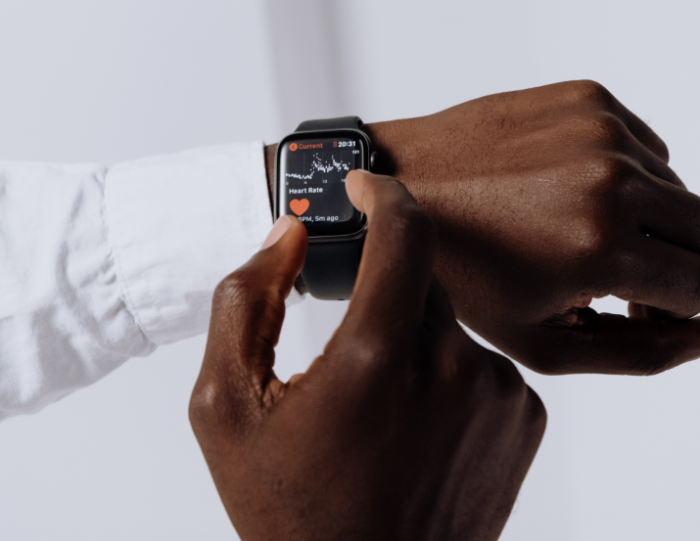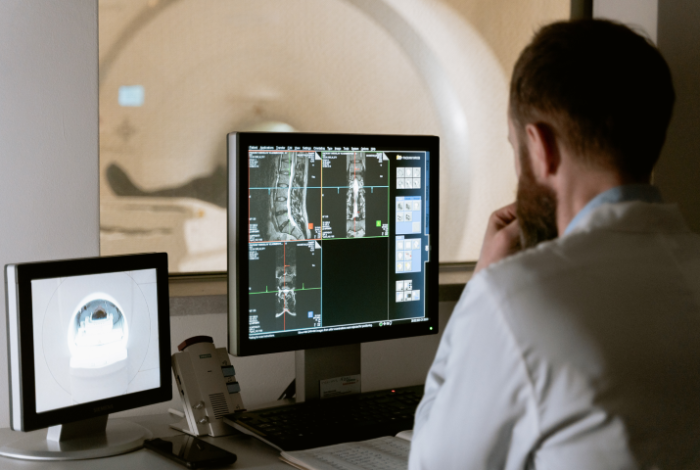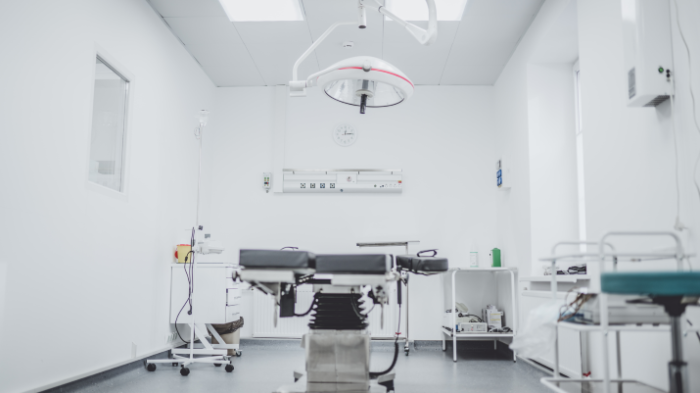
 Data Structure
Data Structure Networking
Networking RDBMS
RDBMS Operating System
Operating System Java
Java MS Excel
MS Excel iOS
iOS HTML
HTML CSS
CSS Android
Android Python
Python C Programming
C Programming C++
C++ C#
C# MongoDB
MongoDB MySQL
MySQL Javascript
Javascript PHP
PHP
- Selected Reading
- UPSC IAS Exams Notes
- Developer's Best Practices
- Questions and Answers
- Effective Resume Writing
- HR Interview Questions
- Computer Glossary
- Who is Who
7 Applications of Machine Learning in the Healthcare Industry
Artificial intelligence's machine learning field trains computers to think as people do by teaching them to see patterns, learn from their actions, and make judgments based on past experiences. The rise of the healthcare industry is only one of the many industries that have been significantly boosted by the development of artificial intelligence. Machine learning has altered medical diagnosis, reduced downtime, and enhanced the quality of automated, tailored health recommendations, particularly in the healthcare sector. In the healthcare sector, machine learning algorithms are utilized to extract important data and insights without the need for continuing programming. Healthcare informatics and treatment procedures become quicker and more precise as machine learning algorithms acquire experience, which makes the tasks of doctors simpler. In this post, we will look at applications of machine learning in healthcare.
Applications of Machine Learning in the Healthcare Industry
Pharmaceuticals, biotechnology, medical research, and development are a few of the many niche disciplines of healthcare that are benefiting from advances in machine learning. Listed below are the applications of machine learning in healthcare.
1. Medical Imaging & Diagnosis
The phrase "medical imaging" refers to a wide range of procedures for viewing the human body in order to detect, monitor, or treat medical problems. Each sort of technology provides specific information regarding the part of the body being researched or treated, whether it is suspected diseases, injuries, or the success of medical care. AI and Machine Learning has a lot of exciting applications in the diagnosis and imaging of medical diseases since computers are capable of managing odd events such as rare illnesses. They are better than the majority of human healthcare specialists in recognizing detailed patterns of a wider range of ailments.

2. Health monitoring
Any action or strategy that protects against potential health problems is considered preventative care. Today, only routine medical checkups, vaccinations, etc. are considered to be part of "preventive care." AI & ML technology's predictive capabilities have the potential to improve present preventative care. In numerous sectors, predictive maintenance is performed using strong AI systems that heavily rely on sensors. The Apple Watch, Fitbit, Garmin, and other wearable health and fitness equipment can function as sensors to enhance preventative care in the healthcare industry. These gadgets automatically support data on sleep, activity, diet, VO2, and heart rate.

3. Personalizing Treatment
Offering personalized therapies is a prominent machine learning use case in the healthcare industry. It enables healthcare companies to provide personalized patient care by assessing individuals' medical histories, symptoms, and diagnostics. Using ML in medicine and healthcare, clinicians can build personalized therapies and provide medications that target particular illnesses in individual individuals. Healthcare organizations can also have access to the analysis based on the patient's electronic health information using ML. This allows clinicians to make faster judgments on what type of treatment is appropriate for the patient.

4. Identifying diseases in their early stages
It's important to diagnose many diseases in their early stages in order to develop a treatment strategy and assist patients in securing a healthy way of life. Doctors are assisted more effectively in the early diagnosis of illnesses by machine learning techniques that combine supervised and unsupervised algorithms. Doctors can respond appropriately if symptoms raise a concern by using machine learning to compare new data on a disease with historical data.

5. Patient Screening
AI and machine learning can aid in prescreening patients long before they arrive at a hospital for treatment. Artificial intelligence (AI) can improve patient prescreening by simplifying the user experience over traditional prescreening questionnaires and allowing for more speech and text-based interactions. Machine learning can also be employed by AI to discover new patterns and improve patient complaint diagnosis. Artificially intelligent chat systems that use text or speech can significantly better simulate the competence of a real-world healthcare practitioner than a pre-programmed, static survey.

6. Drug Discovery
COVID-19 has given light on the development of vaccines. Despite the fact that the globe has been working on a vaccine for a year and great progress has been achieved, the methods for discovering vaccines and medications are labor-intensive, expensive, time-consuming, and typically ineffective. Healthcare businesses are increasingly utilizing AI techniques such as ML and DL to design and test novel medications. Because there are so many chemical combinations, developing novel medications necessitates extensive data analysis. AI tackles this challenge by using its superior performance with massive amounts of data. Because research and development are more successful, this skill can produce more drugs that are approved in less time and at a lower cost.

7. Robotic Surgery
The use of AI technology in the form of cooperative robots has changed the area of surgery. The revolution is seen in the depth and speed of cutting while making little incisions. In general, the outcome of the surgery can be influenced by the surgeon's expertise, especially when a novel or difficult procedure is involved. Even the most qualified surgeons can conduct surgeries more effectively when AI is used to reduce case-to-case variances. Because AI robots are precise, they reduce the chance of tremors or other accidental movements during surgery. Robots powered by AI and ML, for example, are capable of performing fundamental tasks such as precision cutting and stitching while functioning with more accuracy and compactness.

Conclusion
To summarize the relevance of Machine Learning in Healthcare, the greatest score goes to its tremendous skills in sorting and categorizing health data, as well as speeding up physicians' clinical choices and any kind of forecasts that might save lives or make treatment less complex (e.g., the prevention of hypoxemia during surgery). Healthcare is one of the industries that artificial intelligence and machine learning have profoundly impacted. In fact, unavoidable hazards must be considered. However, applying AI to healthcare offers a lot of benefits that indicate it will someday become a must for healthcare. AI has significantly impacted every industry, from boosting the quest for life-saving therapies to enhancing patient care.

